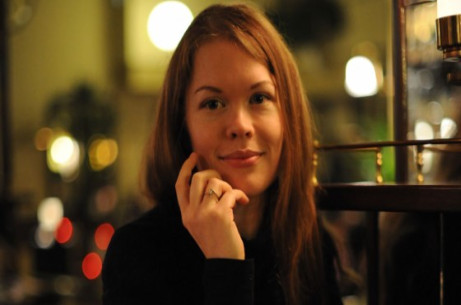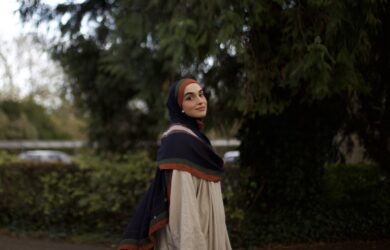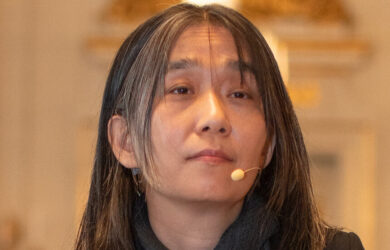
Danelle Van Zyl-Hermann details the importance of the history of emotions in South Africa.
Reflecting back on the past month and its association with St. Valentine’s Day, it seems February often confronts us with emotion a bit more overtly – even if it is only the retail version of romantic love. It has been hard to miss the flowers, the chocolates and the cards, the pink and red and sparkly silver which seems to appear every year for the convenience and consumption of those lucky in love – only to have vanished forebodingly on the morning of the fifteenth. But when did all this happen? I don’t mean, when is the date when store managers give the okay to their assistants to switch the Christmas tinsel and reindeer for dangling cupids against a backdrop of hearts, and then to replace these a few weeks later with florid posters proclaiming the imminence of Mother’s Day. Rather, when did these symbols start representing love? Why did it become accepted or important to celebrate certain kinds of affective relationships in such a public way? While these sentiments seem so obvious to us, would their meanings have been equally intelligible to people living a century or two ago? How has the way in which romantic or familial love is represented impacted the ways in which it is experienced, expressed or understood? These are just some of the kinds of questions which come up for the historian of emotions.
The historical study of human emotions such as fear, shame, disgust, anger, love and happiness is a relatively recent development, forming part of the rise of cultural history and a scholarly interest in subjectivity. Traditionally, emotions are regarded as the domain of psychology and neuroscience. These fields tend to view feelings as physiologically governed and therefore emphasise their universalism: that emotions are the same today as they were in the past and will be in the future, irrespective of the spatial or temporal context in which they function. But social constructionists have critiqued this perspective, showing that the experience, expression and interpretation of emotions take place within a specific social context, and therefore emotions must be culturally specific and embedded in cultural meaning. It follows that the experience, expression, evaluation and interpretation of emotion is intimately bound up with its cultural context and is subject to change over time. In short, emotions have a history.
This is skilfully demonstrated in Fear: a cultural history by the British historian Joanna Bourke. In this book Bourke studies two centuries of dread and panic in the Anglo-American world. From the Victorians’ fear of being buried alive to post-9/11 trepidations over terrorist attacks, she effectively shows how an emotion changes over time within the context of broader social stresses. Interest in studying change and continuity in human emotions has accelerated so rapidly that many universities now house centres and institutes specifically dedicated to the historical study of the emotions. Cambridge was one of the first universities to offer a course on the topic as part of the Themes and Sources history undergraduate paper. The course is taught by a host of acclaimed Cambridge historians and allows students to ponder the literature and evaluate different approaches and methodologies in the historical study of emotions.
But why do feelings deserve so much attention? Proponents of the approach argue that emotions are on par with class or gender – indispensable categories of analysis which should be considered in any historical study in order to more fully comprehend the past. The study of emotions should therefore not simply form a peripheral or unique field of inquiry, but be integrated into all historical research. The American medievalist Barbara Rosenwein explains: “Thus, for example, a history of Germany between the two world wars should include a discussion of not only the economy, the relations between men and women, the ideologies of communism, fascism, and liberalism, and so on, but also the emotions that were privileged – and denigrated – during that period by various dominant and marginal groups.” To Rosenwein, this engagement with emotions in all areas of historical inquiry is “the ultimate goal” (2010).
Yet this trend towards historicising emotions has not caught on in all national historiographies. In my own main field of interest, South African history, there seems to be precious little, well, emotional awareness. Why are South African historians “less emotional”?
During the 1980s, when the cultural turn in historiography was in full swing and the history of emotions was fast developing into an independent field in Europe and the United States, South Africa was firmly caught in the escalating struggle against apartheid. In traditionally nationalist universities and research institutes, scholarship typically continued to revolve around the nationalist project, investigating issues relevant to the continuation of white supremacy and focusing on the history of South Africa since European settlement in the mid-1600s. Race was the central and unquestioned category of analysis. This was the case not simply because many academics supported the system, but also because they were dependent on state funding for their livelihoods. Critical voices sounded from more liberal institutions, where scholars were pointing to the importance of class, investigating the histories of South Africa’s non-white population and trying to lend a voice to the disadvantaged and the marginalised. An ideological war was being waged, a national state of emergency – literally – in which there seemed to be little space for sentiment.
The concerted efforts of the liberation struggle culminated in the first democratic elections of April 1994. Yet despite such obviously emotional phenomena as the euphoria of democracy, Nelson Mandela’s charismatic allure and the revelations of the Truth and Reconciliation Commission, the years following the “miracle” did not see historians’ attention shift to the significance of emotions. Instead, the end of apartheid and the resulting opening up of the academy saw researchers move to studying previously taboo topics such as the past prior to European settlement, and the complexities of identity formation and resistance within South Africa’s multicultural setting. A reinvention of the education system demanded that history quite literally be rewritten to include previously silenced communities and explain the system of racial discrimination and structural inequality which was the country’s heritage. Much like Germany’s need as from the 1950s to master its particular history saw the development of a very specific post-war historiography in that national context, so efforts to understand the origins, rise and demise of apartheid, and to overcome its legacy, occupied South African research agendas. In many of these studies – such as those dealing with daily humiliations under the apartheid system, the intricacies of the relationships between white “masters” and their non-white “servants”, and instances of resilience under these conditions – emotions slumber beneath the surface, even if the authors failed to recognise the history of emotions as such.
Today, almost twenty years on, there has still been little conscious effort to historicise South Africa’s emotional landscape. For all the academic engagement which exists with the country’s traumatic past, it is remarkable that the emotional issues arising from this have not been widely recognised as an area worthy of historical investigation. A handful of local historians have started looking at humour, laughter and the joke to explore the experiences, identity, memory and attitudes of various communities at specific historical junctures, but these historians do not necessarily posit their work in terms of emotions history – and it is debatable to which degree humour and laughter in their usage point to specific emotions at all.
But there might be another explanation for the relative absence of emotional analysis in South African historiography. Possibly, it is not only due to the engagement of the academy (and of South African society in general) with the legacy of apartheid, but also to a pervasive social view of emotions as irrational, unpredictable and dangerous. This view sees emotionality being associated with weakness, instability or lack of control – a notion which resonates in many “western” societies and would be familiar to many readers. Emotions are seen as something which should be relegated to the private sphere – the realm, traditionally, of women – outside of which a degree of emotional constraint is expected. Within the South African context of limited resources and opportunities and the challenges of change, society does champion strength, street-wise savvy and independence above emotional awareness and sensibility. While the contention would need to be investigated systematically, it is possible that this view of feeling as something which should not play an important role in rational behaviour, keeps scholars from recognising – or admitting – the importance of emotions. As the South African academy remains male-dominated to a large degree, one might see the prevalence of historical studies insensitive to feelings as a kind of “masculine” disciplining of “feminine” emotional phenomena.
My own PhD research seeks to contribute towards an emotions history of South Africa. Responding to broader historiographical lacunae, I am investigating the experiences of working class Afrikaners with transformation and democratisation as from the 1980s. This research not only problematises notions of the blanket privileging of whites during apartheid, but enquires into this community’s emotional experiences, their emotional investment in their material circumstances and how emotions may be employed to negotiate political space. Does the interpretation of transformation-as-trauma hold true for all Afrikaners? How does one make sense of the feelings of shame and defeatism which run parallel to expressions of pride and anger in the broader community? Why does the representation of Afrikaners as victims – both discursively and visually – find so much appeal within a community which actually seems to have retained most of its wealth and structural privilege? These are just some of the contradictions which a historical attentiveness to emotions allows us to explore. As a colleague recently remarked, “It doesn’t make sense to look at Afrikaners without looking at emotions!”
Indeed, South African history is ripe for the emotional picking. The dedicated academic engagement with discourse analysis which already exists, along with an interest in past practices relating to sexuality, gender and the body increasingly opens up intellectual space for the discussion of emotions. In a country as ethnically diverse, economically divided and politically sensitive as South Africa, there are myriad opportunities for researchers to set up emotional camp and start delving into the past sensibilities of their chosen subjects.
* Danelle van Zyl-Hermann [2010] is a PhD candidate in history supervised by Prof Megan Vaughan. She has previously published on emotional life at the Cape of Good Hope at the turn of the nineteenth century. This article was originally published on http://www.cam.ac.uk/research/category/discussion/ on 28 February 2012.












